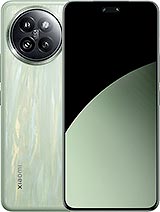Moto G96 alternatives
Tap above to see alternatives.
Oppo Reno13 alternatives
Tap above to see alternatives.
Oppo Reno13

Oppo Reno13
-
Dimensity 8350
4 nm
-
5600 mAh
80W
-
6.59"
1256 x 2760 pixels
-
50 MP
4K@30/60fps
-
Specs

4x2.40 GHz Cortex-A78
4x1.95 GHz Cortex-A55
1x3.35 GHz Cortex-A715
3x3.20 GHz Cortex-A715
4x2.20 GHz Cortex-A510
8GB 256GB (UFS 2.2)
8GB 256GB (UFS 3.1)
f/1.9, (wide), 1/1.56", 1.0µm, Sony LYT-700C, multi-directional PDAF, OIS
8 MP
f/2.2, 119˚ (ultrawide), 1/4.0", 1.12µm, AF
f/1.8, 26mm (wide), 1/1.95", PDAF, OIS
8 MP
f/2.2, 15mm, 115˚ (ultrawide), 1/4.0", 1.12µm
2 MP
f/2.4, (depth)
1080p@30/60/120fps, gyro-EIS, OIS
1080p@30/60/120fps, gyro-EIS
f/2.2, (wide), 1/3.14", 0.7µm
f/2.0, 21mm (wide), AF
1080p@30fps, gyro-EIS
1080p@30/60fps, gyro-EIS
SIM1: Nano, SIM2: Nano
SIM1: Nano, SIM2: Nano
13 5G bands
n1, n3, n5, n7, n8, n20, n26, n28, n38, n40, n41, n77, n78
7 5G bands
n1, n5, n8, n28, n41, n77, n78
In this performance comparison, the Oppo Reno13 with its Mediatek Dimensity 8350 (4nm) performs better than the Moto G96 with the Qualcomm Snapdragon 7s Gen 2 (4nm), thanks to superior chipset efficiency.
Oppo Reno13 launched with Android 15 and will receive updates until Android 18, whereas Moto G96 launched with Android 15 and will get Android 16. Oppo Reno13 will get security updates until 2029 (approx. 4 years), while Moto G96 is supported till 2028.
Both Moto G96 and Oppo Reno13 feature AMOLED displays, offering vibrant colors and deeper blacks. In terms of smoothness, Moto G96 offers a higher 144 Hz refresh rate, ensuring fluid scrolling and animations. Moto G96 also boasts a brighter screen with 1600 nits of peak brightness, enhancing outdoor visibility. Notably, Oppo Reno13 offers a higher screen resolution, resulting in sharper visuals and more detailed content.
Oppo Reno13 features a larger 5600 mAh battery, potentially delivering better battery life. Oppo Reno13 also supports faster wired charging at 80W, compared to 33W on Moto G96.
Both phones feature the same IP68 rating for water and dust resistance.
¹ Scores can vary even with the same chipset due to RAM, thermals, and software optimization.











